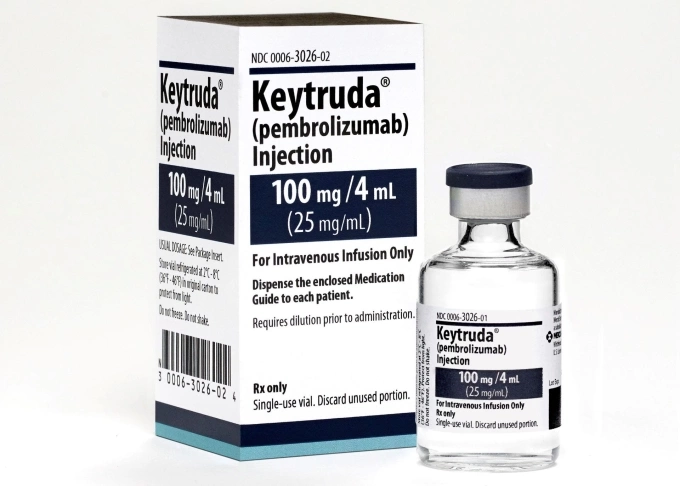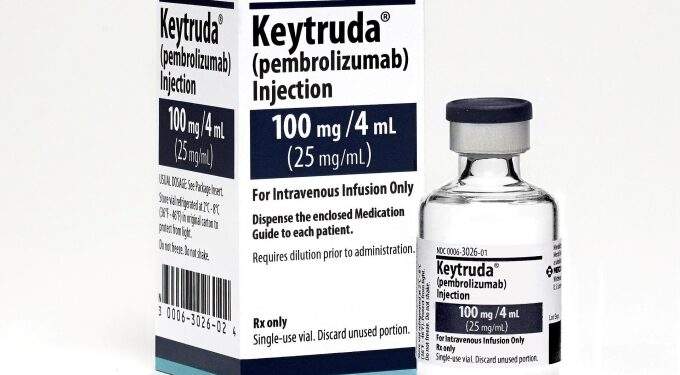Sales are expected to hit $31 billion this year, higher than any other drug, with Ozempic used to treat type 2 diabetes in second place, according to data platform Statista.
Its success stems from a groundbreaking mechanism recognized with the 2018 Nobel Prize in Physiology or Medicine.
Instead of directly attacking tumors like traditional chemotherapy or radiation, Keytruda belongs to a class of immunotherapy drugs that act as a switch that “unlocks” the body’s own immune system.
Scientists James P. Allison and Tasuku Honjo discovered how cancer cells evade detection by producing a protein that sends a false signal to T-cells: “I’m one of you; do not attack.” T-cells are white blood cells crucial in fighting infections.
 |
|
Keytruda produced by Merck. Photo courtesy of the company |
Keytruda blocks this interaction. By “releasing the brakes” on the immune system, it frees T-cells, enabling them to identify and destroy malignant cells more effectively.
This breakthrough led to U.S. Food and Drug Administration and other global health authority approvals for more than 40 treatment indications.
The drug’s therapeutic range is extensive, covering common cancers such as non-small cell lung cancer and melanoma, as well as difficult-to-treat forms like triple-negative breast cancer.
Its ability to extend overall survival and delay disease progression has made Keytruda a first-line choice in many oncology regimens worldwide.
Former U.S. President Jimmy Carter was one of the patients on the drug. In 2015, at age 91, he was diagnosed with melanoma that had metastasized to his brain and liver, and the prognosis was grim.
However, after receiving Keytruda immunotherapy, he went into complete remission to become a global symbol for the drug’s potential.
But despite its success, Keytruda presents a major challenge: side effects. Strong activation of the immune system can cause events in which T-cells mistakenly attack healthy organs, leading to severe inflammation in the lungs, intestines, liver, or endocrine glands.
These require timely and specialized medical intervention. Studies have found that 15–30% of patients treated with immune checkpoint inhibitors experience moderate to severe side effects.
In the U.S., a dose of Keytruda costs more than US$12,000 for each three-week cycle.
In Vietnam, where the drug was approved in 2017, a vial costs VND55-65 million ($2,087-2,466), and full treatment regimens can amount to hundreds of millions or even billions of dong.
As the drug is not in the national health insurance reimbursement list, the entire cost has to be borne by the patient.
To help alleviate this burden, a Keytruda support program for 2024–26 is being implemented at nearly 50 hospitals nationwide, according to the Ministry of Health. But it follows a co-payment model.
Alternative solutions are emerging. Biosimilars, which are versions of the original drug with comparable structure and efficacy but produced at lower costs once patents expire, are expected to be a game-changer.
Merck has developed a new version of the drug, called Keytruda Qlex, which was recently approved by the U.S. FDA.
Pembroria, a biosimilar produced in Russia, has been approved in several markets, including Vietnam.
A vial costs VND18 million but is not covered by health insurance. Experts say increasing competition from biosimilars is expected to reduce prices and help “democratize” access to advanced immunotherapy in low- and middle-income countries.





